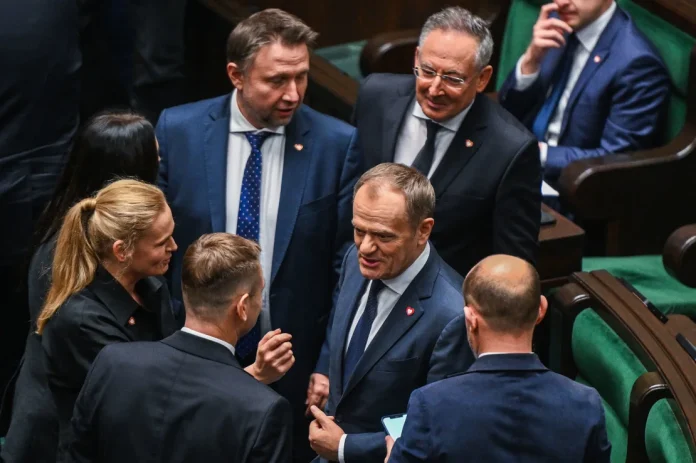The chances of a unified ruling coalition candidate have diminished as Poland’s main parties prepare to announce their own nominees for next year’s presidential election, according to Euractiv.
Under the Polish constitution, incumbent conservative President Andrzej Duda, nominated in 2015 and 2020 by the PiS party, cannot run for a third term. This paves the way for a ruling coalition led by Prime Minister Donald Tusk.
This will make it easier to pass laws, as with Duda at the helm, the government can veto any presidential bill. However, the coalition cannot agree on a single candidate, as each party wants its own.
Tusk’s Civic Coalition will hold a primary between Warsaw mayor Rafał Trzaskowski and current foreign minister Radosław Sikorski, with the candidate to be officially announced on 7 December.
Szymon Hołownia, the speaker of parliament and leader of the Poland 2050 party, announced on Wednesday, 13 November, that he also intends to run for president. He said that Poles deserved “a stronger economy, smart security and pride in what a strong Poland is today in the world and in Europe.”
Hołownia’s decision somewhat surprised his closest coalition partner, Defence Minister Władysław Kosiniak-Kamysz. However, the latter believes there is still hope for a unified candidate from the ruling coalition.
Anyways, I consider Szymon Hołownia a good candidate. Szymon Hołownia’s decision to run should be accepted with full respect and appreciation for his courage and determination.
The Left Party is also expected to nominate a candidate, possibly a woman, as confirmed by Damian Syjczak, head of the office of Science Minister Dariusz Wieczorek. The national-oriented opposition party Confederation announced a few months ago that its candidate would be the party’s co-chairman Sławomir Mentzen.
The PiS will also announce its candidate this month. The most likely candidates are the former head of the National Institute of Remembrance, Karol Nawrocki, and the former education minister, Przemysław Czarnek.
